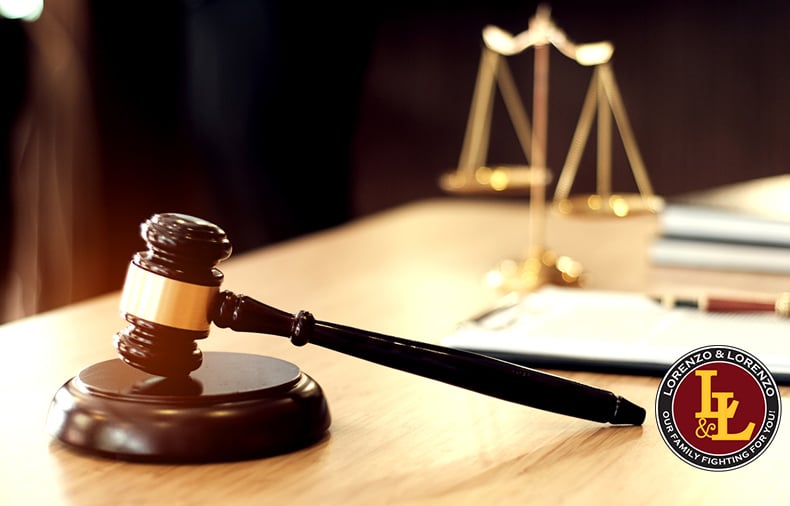
How to resolve a personal injury case in Florida without going to a trial
When you have a legal dispute, the matter doesn’t necessarily have to be resolved in the court of law. In fact, a vast majority of personal injury claims are settled or resolved before a trial is necessary.
Instead, you could save a lot more money and time by turning to alternative resolutions strategies such as mediation and arbitration. This is a process that both you and the other party must agree to, though some parties may have to due to a contractual obligation. However, you may find it less stressful and more constructive.
What is mediation?
People are sometimes hesitant to participate in mediation because there’s confusion around whether mediation is legally binding. Let us set the record straight on this.
The process of mediation is considered to be non-binding. The mediator does not decide the case and simply facilitates the process. During the mediation process, you are allowed to work with the other party to reach an agreement; however, you’re not forced to reach an agreement or to participate in the process. If you cannot reach an agreement, an arbitration service can decide for you.
What is arbitration?
Arbitration, on the other hand, is a binding process. As a result, you will want to be familiar with a particular arbitration service’s procedures before you agree to submit yourself to the service. Several judges, most typically 3, judge your case and come to a decision.
In Florida, arbitrators do not have the power to hold anyone in contempt and cannot impose sanctions against any person. However, they do have the power to issue orders for the purpose of making the arbitration hearing more orderly and expeditious. The courts can enforce these orders, but they can also be appealed.
Pros of mediation and arbitration
Faster resolution
One of the primary benefits of mediation and arbitration is that U.S. courts are perpetually backlogged. If you have a complex case, you may have to wait before you will get your day in court and reach a resolution. With an arbitration case, you can begin the process immediately after an arbitrator has been selected.
In Florida, the arbitration service must complete the process within 30 days of the first hearing, unless the chief arbitrator or one of the parties files a motion to the court for an extension. However, the extension is limited to 60 days after the first hearing. Also, within 10 days of the final hearing, the arbitrator will need to notify both parties in writing their decision. This must include the “issues in controversy” and the arbitrator’s findings of fact and law.
Choice of arbitrator
With a civil case, the courts that hear the case are determined entirely by the jurisdiction that the case falls under. However, with mediation and arbitration, both parties can decide which service they would like to rely on. The judge is appointed and you will have no control over who hears your case.
If you ultimately decide that you no longer want to settle matters through mediation or arbitration, you have the option of filing a motion for a trial after service on both parties of the decision. If either party does not file a motion within 20 days of the service of the decision, the decision is referred to the presiding judge.
Privacy
Litigation is carried out in a public courtroom. In contrast, a civil case is carried out privately. If there are any embarrassing details you do not want to be made public, a mediation and arbitration service is a better choice.
Cons of mediation and arbitration
Less leverage
One of the downsides of mediation is that the courts have more tools for getting to the truth of a matter. As such, they are able to force citizens to testify and produce evidence that mediators do not have access to.
Fewer rules
Courtrooms have strict rules designed to make the process fair for all parties involved. Mediators do not have the same formal rules, and therefore a more aggressive party may have a better chance of winning a mediation. Some mediators are very skilled, but they are also limited in what they can do in these situations.
Not good for criminal cases
Mediation is best for situations that involve financial disputes and mediation in personal injury cases. However, if you have a case that involves physical abuse, mediation may not be well-suited for this purpose.
Florida’s mediation and arbitration process in personal injury cases
The rules for the procedure must be agreed upon by both parties. In some cases, both parties might agree to abide by the standards set by the American Arbitration Association. However, you may also choose to create your own customized rules that can fit well with your personal injury mediation strategy.
Some arbitration services only use 1 arbitrator. However, in most cases, each party selects 1 arbitrator and both arbitrators select the third one.
The state of Florida regulates the arbitration process. The arbitration service must conduct the hearing informally. Both sides must minimize the presentation of the testimony and they must present the facts and issues primarily through documents and the argument of the counsel.
In some cases, the arbitrator may even give one of the parties permission to not attend the hearing. If one party does not arrive at the hearing without permission beforehand, the procedure can commence and the arbitrators will enter a judgment based on the evidence presented.
After the hearing, you may request a transcript of the hearing which you will receive after paying a fee. The entire process is fast, transparent, private and should never be overlooked when you find yourself in a dispute that you cannot resolve otherwise. If you aren’t sure which option is right for you, speak with our Florida personal injury attorneys.






